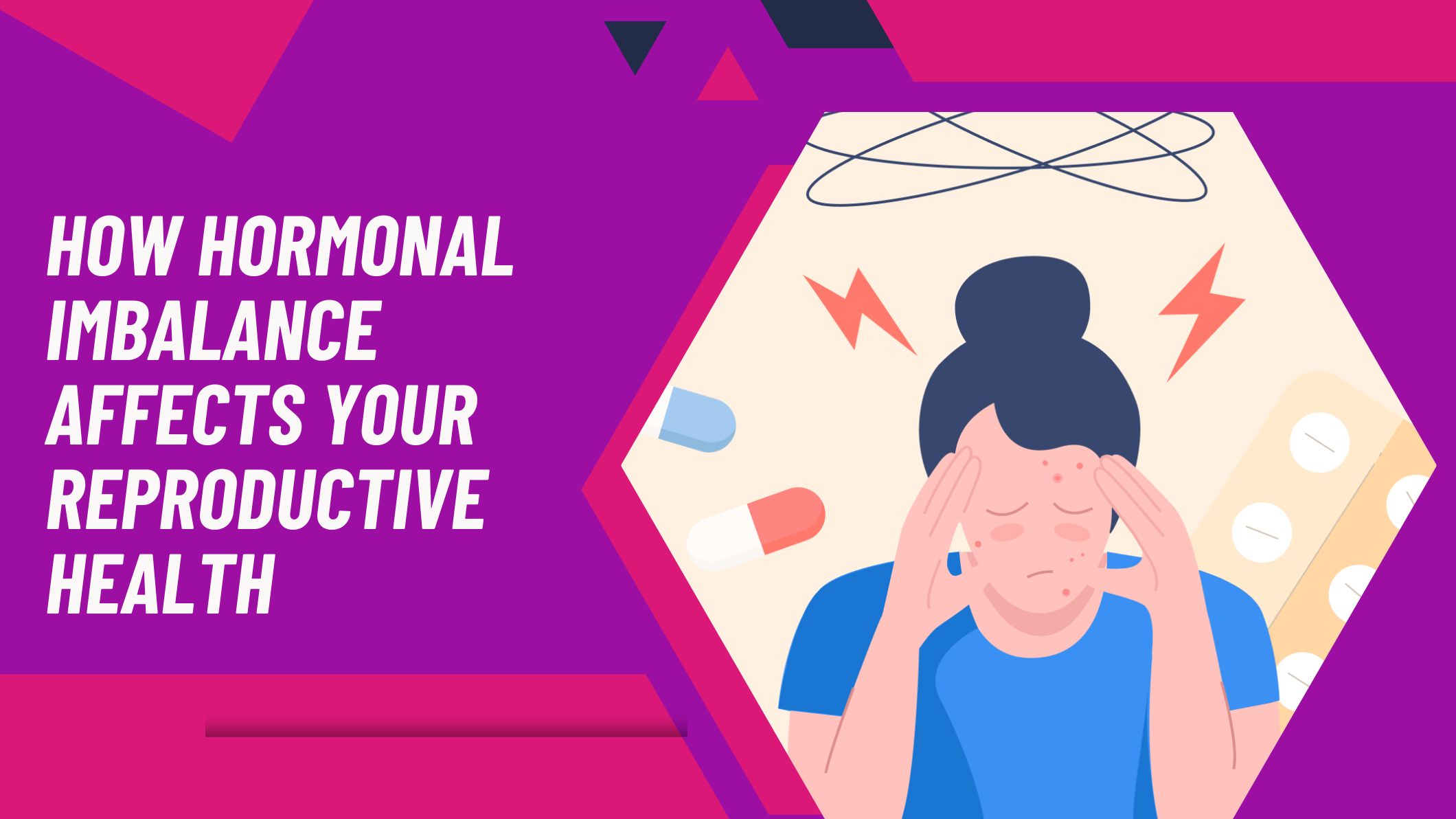
Hormones play a crucial role in maintaining the delicate balance of your reproductive system. They regulate vital functions such as menstrual cycles, ovulation, fertility, and even mood and energy levels. When these hormones become imbalanced—either too high or too low—it can significantly impact reproductive health and overall well-being. Understanding how hormonal imbalance affects the body is the first step toward effective management and recovery.
Understanding Hormonal Imbalance and Its Causes
A hormonal imbalance occurs when there is an abnormal fluctuation in the production or regulation of hormones such as estrogen, progesterone, testosterone, luteinizing hormone (LH), and follicle-stimulating hormone (FSH). These hormones work together to maintain reproductive health in both men and women.
In women, imbalances may arise due to conditions such as polycystic ovary syndrome (PCOS), thyroid disorders, perimenopause, stress, or poor lifestyle habits. In men, low testosterone levels and issues related to the pituitary gland can lead to reproductive challenges. Environmental toxins, certain medications, obesity, and lack of physical activity can also interfere with normal hormone production.
Recognizing the root cause of the imbalance is vital, as untreated hormonal issues can lead to long-term complications, including infertility, metabolic problems, and increased risk of chronic diseases.
Impact of Hormonal Imbalance on Reproductive Health
1. Irregular Menstrual Cycles and Ovulation Problems
One of the earliest signs of hormonal imbalance in women is an irregular menstrual cycle. Excess estrogen or insufficient progesterone can disrupt ovulation, leading to missed or prolonged periods. Conditions like PCOS are a common cause of irregular ovulation, making conception more difficult. Similarly, low estrogen levels during perimenopause can result in lighter, unpredictable cycles.
In men, hormonal imbalance—particularly low testosterone—can affect sperm production and quality, leading to fertility challenges. Balanced hormones are essential for proper reproductive functioning in both genders.
2. Fertility Challenges and Pregnancy Complications
Hormonal imbalance directly affects fertility by disrupting the natural rhythm of ovulation and sperm development. In women, inadequate levels of progesterone can prevent the uterine lining from properly supporting a fertilized egg, increasing the risk of miscarriage. High levels of prolactin, the hormone responsible for milk production, can also inhibit ovulation.
In men, reduced testosterone or elevated estrogen can lower libido and sperm count. Hormone-driven fertility problems are often treatable once identified, emphasizing the importance of timely medical intervention and hormone testing for couples facing conception difficulties.
3. Other Health Effects Linked to Hormonal Imbalance
Beyond reproductive issues, hormonal imbalance can affect multiple aspects of health. Women may experience acne, hair loss, mood swings, unexplained weight gain, and fatigue. Men may notice decreased muscle mass, erectile dysfunction, or depression. Additionally, imbalanced insulin levels can contribute to metabolic disorders like diabetes, further complicating reproductive health.
Emotional and psychological symptoms are also common. Chronic stress elevates cortisol levels, which can suppress reproductive hormones and cause menstrual irregularities or infertility. A holistic approach to managing hormonal imbalance—combining medical care, nutrition, and lifestyle adjustments—is essential for long-term well-being.
Managing Hormonal Imbalance for Better Reproductive Health
Addressing hormonal imbalance begins with accurate diagnosis through blood tests and medical evaluations. Treatment options may include hormone therapy, medication, dietary changes, stress reduction, and physical activity. Eating a balanced diet rich in antioxidants, healthy fats, and fiber can help regulate hormone levels naturally.
It’s equally important to maintain a healthy sleep schedule, minimize exposure to endocrine-disrupting chemicals, and manage stress through yoga or meditation. With the right guidance, hormonal balance can often be restored, leading to improved fertility, mood stability, and overall vitality.
If you’re experiencing symptoms of hormonal imbalance or facing reproductive challenges, Dr. Preeti Tandon provides the best services to help restore your hormonal and reproductive health. With her expertise and compassionate approach, she offers personalized treatment plans tailored to your body’s unique needs—empowering you to regain balance, wellness, and confidence.



